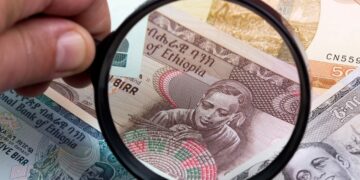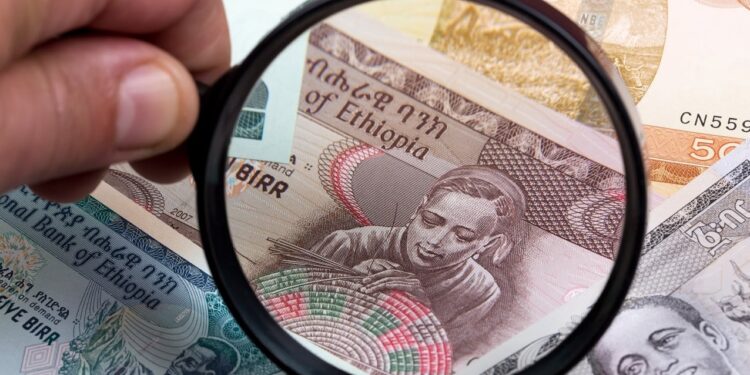By John Ikani
Ethiopia’s economy has undergone a significant shift as the government relaxes strict currency controls.
The birr, the nation’s currency, has depreciated by a substantial 30% against the US dollar, according to the Commercial Bank of Ethiopia.
This drastic move is a departure from the country’s long-standing policy of fixing the exchange rate.
The government aims to secure a substantial $10.7 billion loan from the International Monetary Fund (IMF) and World Bank.
The decision has sparked apprehension among Ethiopians, as it is feared to trigger a sharp increase in the cost of living, exacerbating the already high inflation rate.
The country has grappled with chronic foreign currency shortages, particularly in recent years, hindering economic growth.
The two-year civil war in the Tigray region, which ended in 2022, and ongoing conflicts in other parts of the country have further undermined the economy and deterred foreign investment.
Under the new central bank policy, the birr’s value will now be determined by market forces.
This change aligns with the IMF’s demands for a series of reforms, including currency floatation, as a precondition for the bailout package.
Ethiopia also seeks to restructure its external debt, which stands at approximately $28 billion.
Central bank governor, Mamo Mehretu, announced the implementation of a competitive, market-based foreign exchange regime, marking a significant policy shift after half a century.
Commercial banks are now authorized to buy and sell foreign currencies at negotiated rates.
Historical precedents suggest that similar currency devaluations have led to rapid price increases for food and other imported goods.
To mitigate the impact and stabilize the market, the government has pledged subsidies for low-income earners.
The central bank justified the policy change by citing the prevalence of an unofficial parallel market, where the dollar fetched double the official rate.
Importers often resorted to this market due to foreign currency shortages, leading to inflated prices.
However, concerns persist that the birr’s value could further decline beyond the parallel market rate.




































